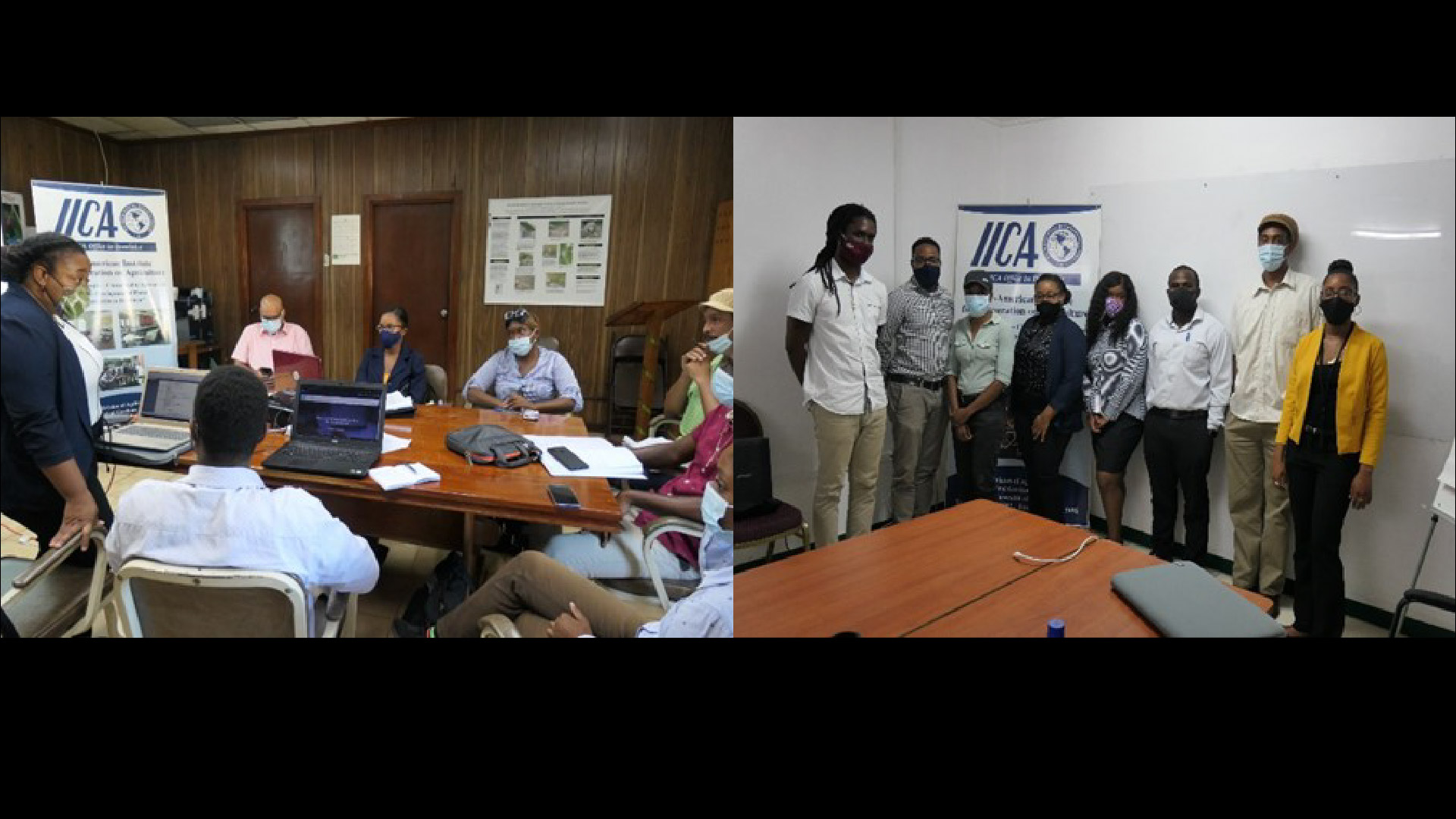The framework calculates the Resilience Capacity Index (RCI) of households based on established resilience structures or pillars, such as, adaptive capacity, access to basic services, assets, and social safety networks.

Roseau, Commonwealth of Dominica, 8 June, 2021 (IICA) – The Dominica Delegation of the Inter-American Institute for Cooperation on Agriculture (IICA) held a three-series training workshop for building the capacity of professionals in agriculture and related sectors to “empirical measure and evaluated climate resilience and food security”.
The series of trainings were held following the results of Claudelle Serano’s, IICA supported, post-graduate research on ‘Hurricane Resilience and Food Security in Caribbean Small Island Developing States: A Study of the Commonwealth of Dominica’, conducted in the village of Delices.
The research framework used for measuring and evaluating resilience was the Resilience Index Measurement and Analysis (RIMA-II); developed by FAO and presents a quantitative approach for analysing how households cope with shocks and stressors.
The framework calculates the Resilience Capacity Index (RCI) of households based on established resilience structures or pillars, such as, adaptive capacity, access to basic services, assets, and social safety networks.
The trainings were facilitated by Serano, researcher who headed questionnaire review and modification; Chaney St. Martin, International Water Resources Specialist at IICA, who spearheaded the statistical analyses and interpretation of data for resilience measurement, and Derrick Theophile, Agriculture Information Technology Officer at the Ministry of Blue and Green Economy, who was responsible for data management.
A total of 7 professionals from the Ministry of Blue and Green Economy, Agriculture and National Food Security; Ministry of Finance and Investment (Central Statistical Office); Ministry of Economic Affairs, Planning, Resilience and Sustainable Development, Telecoms and Broadcasting; UNDP and CARDI were trained.
According to the Director of Agriculture, Ricky Brumant, “The Ministry recognizes the need for this type of training in research and evidence for informed decisions in agriculture”.
Kent Coipel, Technical Specialist of the IICA Delegation in Dominica, stated that “it is important to develop these capacities and share learnings that would allow the country to meet its resilience targets and objectives”. St. Martin highlighted that “for the first time in the Caribbean, resilience within the agriculture sector is being evaluated in a systematic way to inform our policies”.
More information:
Kent Coipel, Technical Specialist, IICA Dominica











